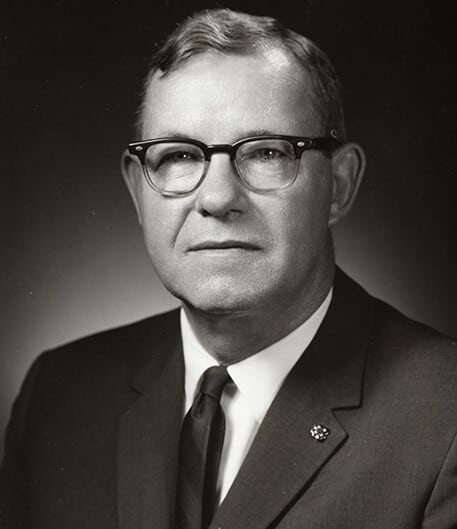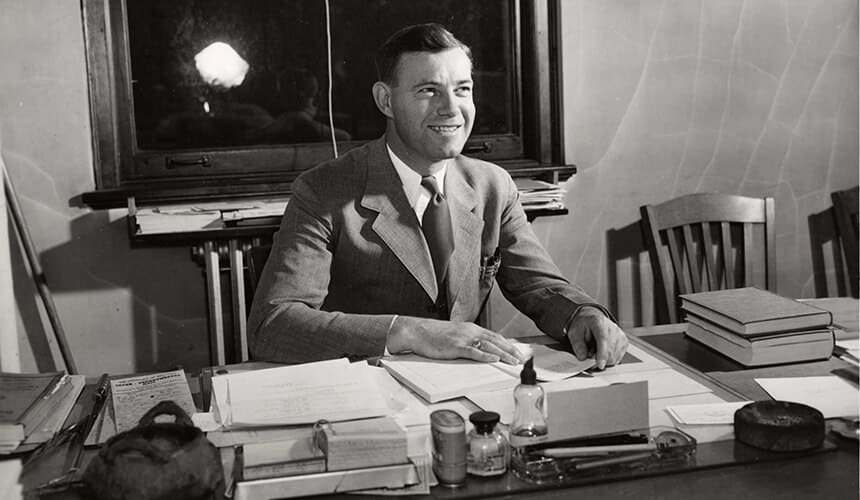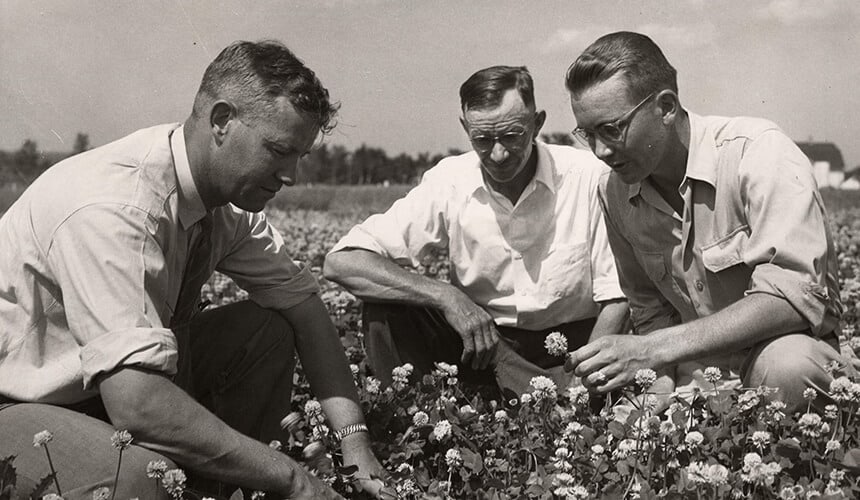Henry Ahlgren
Extension Program Reformer
Agriculture feeds the world. Henry Ahlgren BS1931, MS1933, PhD1935 saw the need for farmers to change as the world was changing, to improve their livelihoods by welcoming the scientific methods they once viewed with skepticism.
As associate director of Cooperative Extension at the UW and later chancellor of UW–Extension, Ahlgren reformed outreach efforts in Wisconsin and across the country. A respected agronomy professor and expert in pasture management, he was initially reluctant to become a campus administrator. But his research had taken him to plenty of farms over the years. Rural residents were his people, and he knew he could reshape how the university was sharing knowledge with them.

Image courtesy of the UW Archives.
“While Ahlgren recognized the value of the current co-op extension program, he also believed some major changes were needed. In his view, America was rapidly becoming more urban than rural, and the college [of agriculture] needed to assist with this fundamental transition,” wrote E. David Cronon Jr. MA1949, PhD1953 and John Jenkins MA1973, PhD1978 in their book about the UW’s history.
Ahlgren wasted no time. He helped county extension agents to shift from being technicians to being educators. He established advanced training programs, opened the door to achieving tenure, and assigned new titles to better reflect what agents could offer. And he chaired a national committee tasked with modernizing extension programs. The committee’s final report recommended improvements in areas ranging from agricultural production to youth development to farm management.
From The Park
As “Mr. Extension,” Hank Ahlgren took the emerging science of agronomy to farmers across Wisconsin and America, inspiring a generation of future agronomists and introducing methods and technology that helped to preserve the family farm.
Source: © Milwaukee Journal Sentinel, reprinted with permission
Ahlgren took a yearlong leave of absence in 1970 to serve as undersecretary of the U.S. Department of Agriculture, helping to establish rural development committees in every state.
Perhaps the most tangible evidence of Ahlgren’s legacy can be seen during an annual event, Wisconsin Farm Technology Days. He first suggested the program, then called Farm Progress Days, as an agricultural showcase in 1954. It has now grown to host hundreds of exhibitors and thousands of attendees, who gather on acres of rolling Wisconsin farmland to exchange knowledge — just as Ahlgren envisioned.
“As I look back along the road of my yesterdays, I know that more changes have occurred on our farms and in our homes during my lifetime than in all previous recorded history,” he wrote in the foreword to My Land, My Home, My Wisconsin, a book published in 1978 that celebrates farming in the state. “Science and technology have helped our farmers and homemakers attain a position in our society that cannot be matched by their counterparts in any other part of the world.”
 30° F
30° F
